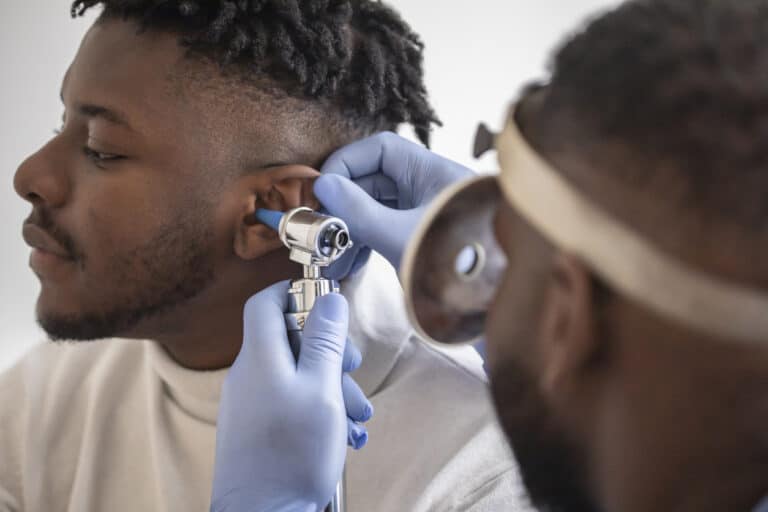Autoimmune diseases are when your body’s immune system mistakenly attacks normal or healthy cells. Autoimmune inner ear disease, or AIED, is when the body mistakes normal cells for virus or bacteria cells in the ear and attacks them, resulting in hearing loss.
AIED is quite rare, making up only 1% of the 28 million Americans with hearing loss. It impacts women more commonly than men, and those aged 30 to 60 years old.
What Are the Symptoms?
AIED most commonly results in sensorineural hearing loss, or SNHL. SNHL is hearing loss of the inner ear. The hearing loss can be rapid and fluctuate in severity. Twenty percent of people with AIED also experience other autoimmune diseases such as lupus or rheumatoid arthritis.
Other symptoms can include:
- Tinnitus and ear fullness
- Imbalance or motion intolerance
- Difficulty walking or vertigo
- Conductive hearing loss (hearing loss in the outer or middle ear)
Poor word recognition is common with AIED, so if you’ve noticed a sudden inability to hear conversations at The Mill, you may want to speak with your hearing specialist.
What Are the Treatments?
The effects of AIED are potentially reversible if treated urgently. The primary treatment is corticosteroids, or steroid treatment. It is recommended as a 4-week course that can be continued for as long as six months and eventually tapered off.
For patients who don’t respond to steroid treatments, immunosuppressants may be recommended. These medications decrease the intensity of the body’s immune response.
How Is It Diagnosed?
Diagnosing AIED can sometimes be difficult because there are no set diagnostic criteria. Lab tests, immune screenings and steroid trials can all be used to diagnose AIED, and other causes for SNHL will need to be ruled out. Partnerships with otolaryngologists and rheumatologists may also be necessary.
Sometimes, AIED can result in permanent hearing loss that may be helped with assistive hearing devices. However, when caught early, the hearing loss can be treated. Your hearing specialist at SH Audiology can help determine what course of treatment is right for you.

